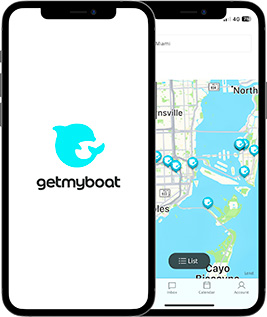Clearwater, Florida, famous for its Gulf of Mexico beaches, is a thriving destination for tourism and commercial boating. Activities like fishing trips, dolphin tours, and water sports flourish here due to the city's ideal location and climate. Commercial boating significantly boosts tourism and supports local businesses.
All GetMyBoat operators are required to comply with local regulations, including obtaining necessary registrations and permits, meeting vessel and captain requirements, and using designated areas for commercial activities. We've gathered essential information for Clearwater boating to help you navigate smoothly.
Insurance:
In order to ensure the safety of passengers, safeguard your business, and comply with legal requirements when managing a boat rental service, it is essential to have appropriate insurance coverage. For guidance on determining the necessary coverage, please contact our affiliated partner, BCI.
Boating Safety Education Card:
Anyone born on or after January 1, 1988, who intends to operate a boat in Florida waters equipped with an engine of 10 horsepower or greater is required to possess a Boating Safety Card.
Vessel Titling and Registration:
To register your boat, visit the county tax collector or license plate agent. To establish ownership, you can present a bill of sale, builder's contract, manufacturer's document, federal marine document, or other accepted proof. If your boat requires a title, you must obtain it before proceeding with registration.For further details, visit the Florida Highway Safety and Motor Vehicles website.
The Florida Boating Safety Act of 2022 (SB 606):
SB 606 , which became effective on January 1, 2023, is a fresh legislation aimed at enhancing safety on Florida's water bodies. This law achieves its objectives by elevating penalties for violations, instituting a licensing system for boat rental providers, and introducing novel criteria for the operation of boat rental businesses.
Captains License:
Each captain is obligated to hold an active U.S. Coast Guard license, which must be provided to the Commission for verification purposes. Vessels accommodating 6 or fewer passengers necessitate a 6-pack license, while those accommodating more than 6 passengers require a Master's Captain's license. The captain bears full responsibility for ensuring the charter boat's safe operation and the welfare of all passengers on board. More information to obtain the license can be found: Mariners Learning System.
USCG Certificate of Inspection:
A COI validates a vessel's safety compliance and suitability for passengers or cargo. Requirements vary by vessel type and size.For a Clearwater, Florida COI, contact Coast Guard MSU Clearwater at (727) 570-4881 for guidance and inspection scheduling.
Passenger Pick Up/ Drop Off:
Many locations allow for boat drop-offs and pickups for rentals, and this one has designated passenger areas. Before finalizing your arrangements, be sure to confirm the pickup and drop-off policies with the marina or dock.
- Belleair Causeway Boat Ramp is situated at 3900 W. Bay Dr., Belleair Bluffs, FL 34640
Florida Fish and Wildlife:
Before offering commercial fishing services and charging fees, obtain a Charter Captain or Boat License in Florida. Follow U.S. Coast Guard rules for saltwater fishing guides. Operators of commercial boats must hold a Captain's license or Merchant Mariner Credential.
A Charter Captain License permits certified captains to work on various boats but requires a valid Coast Guard License for passenger vessels. Boats used commercially must be registered or have a U.S. Coast Guard commercial use certificate.
Charter Boat Licenses are specific to each vessel and for commercial use, requiring registration or a U.S. Coast Guard commercial use certificate.
To get an FWC Charter Captain license, you must have a Coast Guard Captain's license. For more on the Coast Guard Captain's license, call 1-888-427-5662 or visit the USCG website.
Essential Equipment and Information:
- Commercial vessels must be moored or positioned so as not to block, constrain, or disturb the use of public docks, launch ramps, or other waterfront facilities accessible to the public.
- It is prohibited for boats to release any waste into the waterways.
- Operating boats within restricted zones, such as swimming areas and manatee zones, is strictly prohibited.
- Commercial boats are required to adhere to all noise regulations and ordinances.
To ensure the safety and compliance of your commercial boat, you must have the following equipment on board.
- Personal Flotation Devices (PFDs): One USCG-approved PFD per person on board, including children, to be worn when the boat is not in an enclosed area.
- Fire Extinguisher: Required for most recreational motorboats, except certain small outboard-powered ones.
- Vessel Lighting: Mandatory navigation lights compliant with USCG regulations.
- Sound-producing Device: Necessary for signaling, such as a bell, horn, or whistle.
Additional Resources:















